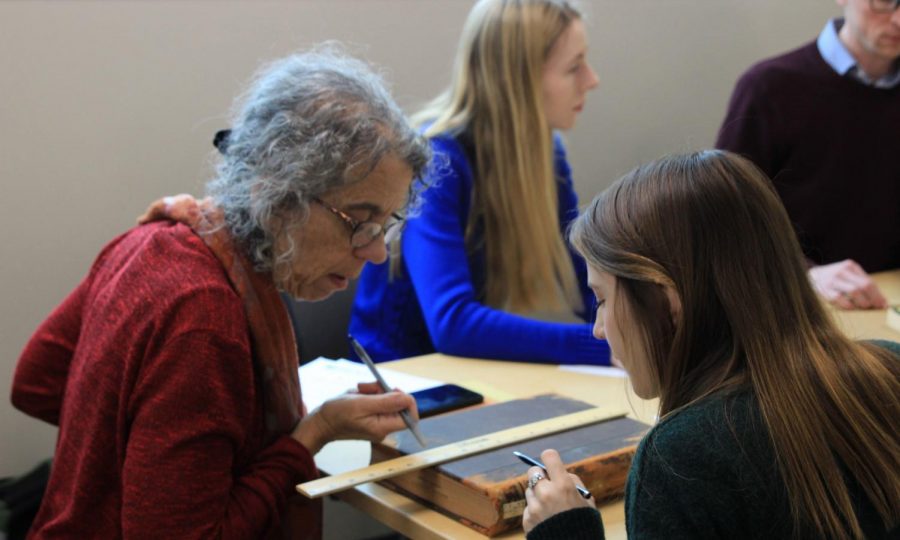OU awarded grants to maintain archives, special collections
Courtesy of Oakland University
Students and staff participate in book measuring during a workshop on preserving old and rare books.
To help Kresge Library continue to preserve books, newspapers, microfilms and other artifacts in its archives, Oakland University received the Preservation Assistance Grant for Small Institutions for $9,943 from the National Endowment for the Humanities.
The grant is being put toward funding the environmental monitoring program so OU can improve upkeep of the Oakland University Archives and Special Collections. It also paid for the visit of a preservation specialist: Sean Ferguson from the Northeast Document Conservation Center.
“Doing this kind of preservation is really one of the most impactful things we can do because if we can’t preserve the materials for a long term, and I’m talking about hundreds of years, then people won’t be able to enjoy them a hundred years from now,” said Dominique Daniel, coordinator of OU Archives and Special Collections. “So, the grant provided that extra money that allows us to improve the preservation situation.”
The archives and special collections are on the first floor of Kresge Library. Students, staff, alumni and faculty are allowed access to these archives, which can be beneficial for class work, research and learning about the history of OU.
“We really want to preserve the history of the university because the history is part of the identity of the university,” Daniel said. “For example, Matilda Wilson. We know that she provided the land of the money to found the university and we know a lot of things about her and her husband thanks to the archives on Meadow Brook Hall and also here in our collections. We have lots of photographs that help do exhibits and events related to her, and it’s the same thing for other people or places or events.”
OU also received a $6,000 preservation assistance grant from the National Endowment for the Humanities in 2018, which funded a general assessment of the archival policies and practices and may lead to the addition of an environmental monitoring program.
This is Ferguson’s second time at OU, and this time he used data and looked at strategic locations that would be best for the archives. He gave advice such as changing to different archival quality boxes and creating an environmental monitoring program.
Kresge Library will be using room temperature and relative humidity data to identify any problems and create solutions to slow down the deterioration of the materials, which Ferguson said are essential to maintaining archives.
“One of the most important factors in the preservation of cultural heritage materials is the type of environment you provide to them, in terms of temperature and relative humanity,” Ferguson said. “A high temperature accelerates chemical reactions in paper-based materials, other materials audio-visual materials as well and other types of cultural heritage objects. When that temperature is too high, chemical reactions occur that break down those materials over a period of time. To keep the temperature low, and to understand the type of temperature you have is an important part of managing preservation, the same could be said for managing a good relative humanity in the collection.”
The library now has data loggers placed by the archives that will record data for 30-minute intervals measuring temperature and humidity accurately for a full year. Then, the data collected will be uploaded to an environmental monitoring software, which will allow the library to fully understand which situation is best suited for the archives.






